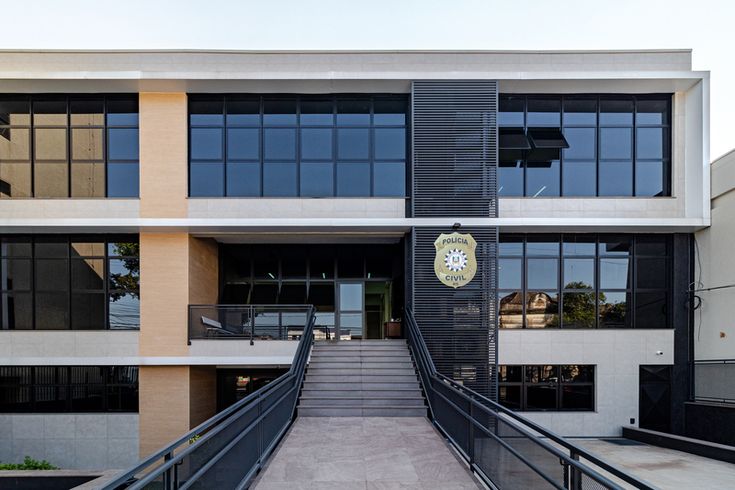- Admin
- Apr 08, 2025
- Government & Public Services
Best OF Top 10 Police Stations in Boston
Best OF Top 10 Police Stations in Boston
When it comes to maintaining Public Safety Services Boston, the city’s police stations play a crucial role in ensuring a safe and secure environment for its residents and visitors. From responding to emergencies to conducting criminal investigations and offering community support, Boston’s police stations serve as essential pillars of the city’s public service system. In this blog, we will explore the Top 10 Police Stations in Boston, each providing specialized services to enhance public security.
Why Police Stations Matter in Boston's Public Safety Landscape
Police stations are the backbone of Emergency Response Services Boston. They are responsible for upholding law and order, offering community support, and responding to a variety of emergencies, including accidents, criminal activities, and social unrest. Their operations extend far beyond traditional law enforcement to include Community Development Programs Boston that foster relationships between officers and the public, creating a safer, more cooperative environment for all.
Key Services Provided by Boston’s Police Stations
The Top 10 Police Stations in Boston are equipped with specialized services to meet the diverse needs of the community. These include:
-
Public Safety Services Boston that ensure quick and effective responses to crimes and emergencies.
-
Regulatory Agencies Boston that enforce laws and regulations, contributing to the city’s overall safety.
-
Government Services Boston, including collaborations with other public sector agencies to address complex societal issues such as homelessness, drug addiction, and mental health crises.
-
Infrastructure Development Services Boston that ensure the physical safety of public spaces by addressing urban issues and improving safety features in key locations.
Each of these police stations plays an integral role in the safety of Boston’s neighborhoods, from community policing to responding to large-scale emergencies.
Overview of the Top 10 Police Stations in Boston
1. Boston Police Department Headquarters
The heart of Public Safety Services Boston, the Boston Police Department (BPD) Headquarters, handles a wide array of law enforcement duties. It oversees multiple districts and serves as the base for Emergency Response Services Boston. The station is pivotal in coordinating responses during large-scale incidents or citywide emergencies.
2. District D-4 (South End & Fenway)
District D-4 covers the South End and Fenway areas, with a particular focus on community engagement. This district is renowned for its proactive approach to crime prevention through partnerships with Social Welfare Organizations Boston and Public Safety Services Boston. The officers here provide vital support to local residents while working closely with Public Health Services Boston.
3. District C-6 (South Boston)
Serving the South Boston area, District C-6 is known for its high visibility and response times. The station works closely with Urban Planning Organizations Boston to ensure that local development projects contribute to public safety. Officers in this district are also involved in Waste Management Solutions Boston initiatives, ensuring that crime rates don’t correlate with neglected, poorly maintained areas.
4. District A-1 (Downtown Boston)
District A-1, situated in the heart of downtown, is responsible for responding to both everyday incidents and major events. Its proximity to key Government Services Boston locations makes it crucial in managing security during city council meetings and large public gatherings. Officers here also collaborate with Veteran Support Organizations Boston, offering assistance to veterans within the community.
5. District B-2 (Roxbury)
The Roxbury district’s police station is dedicated to community safety and has a reputation for building trust within the neighborhood. This district places a strong emphasis on Community Development Programs Boston, offering local residents various support services while addressing the underlying causes of crime.
6. District E-13 (Jamaica Plain)
District E-13 services the Jamaica Plain area and is well-regarded for its focus on mental health crisis intervention. Officers often collaborate with Public Health Services Boston to handle situations that require specialized care, such as addiction or mental health-related incidents. They also work with Regulatory Agencies Boston to prevent neighborhood disturbances.
7. District B-3 (Mattapan)
District B-3, which covers the Mattapan area, has an active Community Development Programs Boston approach. It prioritizes youth engagement through outreach and education programs. The station partners with Legal Aid Organizations Boston to provide legal support to individuals in need.
8. District A-7 (East Boston)
District A-7, serving East Boston, provides critical Public Safety Services Boston through a combination of law enforcement, crime prevention, and community engagement. This district is known for its strong collaborations with Social Welfare Organizations Boston to support families and individuals in need.
9. District B-5 (West Roxbury)
District B-5, located in West Roxbury, is a suburban-focused police station with a focus on maintaining public order. Officers work closely with Public Transportation Services Boston to ensure that public transport systems are safe from threats. They also engage with Environmental Protection Agencies Boston to address any environmental safety concerns in the area.
10. District C-11 (Dorchester)
District C-11 serves Dorchester and is integral to the city’s crime prevention efforts. The station works alongside Public Utility Companies Boston and Water Supply Services Boston to protect public infrastructure and ensure that these services are not disrupted due to criminal activity or vandalism.
FAQs
1. What are the main functions of the Boston Police Department?
The main functions of the Boston Police Department include enforcing the law, responding to emergencies, community policing, and ensuring public safety across Boston.
2. How can I contact the Boston Police Department?
You can contact the Boston Police Department through their non-emergency number or by visiting the department’s website for more specific contact information.
3. Are there specialized units in Boston's police stations?
Yes, Boston’s police stations have specialized units, including K-9, crime scene investigation, and mental health crisis teams.
4. What type of community programs do Boston police stations offer?
Programs offered by Boston police stations include youth engagement, neighborhood watch, crime prevention workshops, and mental health services.
5. How many police officers are there in the Boston Police Department?
The department employs several thousand officers across its various divisions, each trained to handle specific types of incidents.
6. What is the average salary for a police officer in Boston?
The average salary for a police officer in Boston ranges from $60,000 to $75,000 annually, depending on rank and experience.
7. Where is the headquarters of the Boston Police Department located?
The headquarters is located at 1 Schroeder Plaza, Boston, MA.
8. How are the police stations funded?
Funding for the police stations primarily comes from the city’s budget, including federal and state grants for specific programs.
9. Do Boston’s police stations collaborate with other city services?
Yes, Boston’s police stations collaborate with Public Health Services Boston, Waste Management Solutions Boston, and Legal Aid Organizations Boston.
10. Can I volunteer with the Boston Police Department?
Yes, Boston Police offers community programs where residents can volunteer, including neighborhood watch and youth engagement programs.
11. What major services are provided by the police stations?
Police stations provide law enforcement, emergency response, crime prevention, public safety, and community engagement services.
12. Are there any youth programs in Boston’s police stations?
Yes, several programs target youth education, mentorship, and crime prevention.
13. Do the police stations offer any assistance for mental health crises?
Yes, many stations collaborate with Public Health Services Boston to address mental health crises and provide support.
14. What is the role of police stations in emergency management?
Police stations play a pivotal role in Emergency Response Services Boston, including disaster management, crisis response, and recovery operations.
15. How do police stations support local businesses?
Police stations work with businesses to ensure safety through crime prevention and response programs.
16. What are the most common calls for service in Boston’s police stations?
The most common calls include traffic incidents, domestic disputes, theft, and disturbances.
17. How do police stations help with public health concerns?
They collaborate with Public Health Services Boston to address issues such as addiction, mental health, and public health emergencies.
18. How can I report a crime in Boston?
Crimes can be reported directly to the police by calling 911 for emergencies or using the non-emergency number for less urgent matters.
19. Do Boston police stations have online services?
Yes, many services, including crime reporting, case updates, and public safety alerts, are available online.
20. How does the police department contribute to the city’s infrastructure?
Police stations work alongside Urban Planning Organizations Boston and Public Works Departments Boston to ensure public infrastructure is safe and well-maintained.




Share on